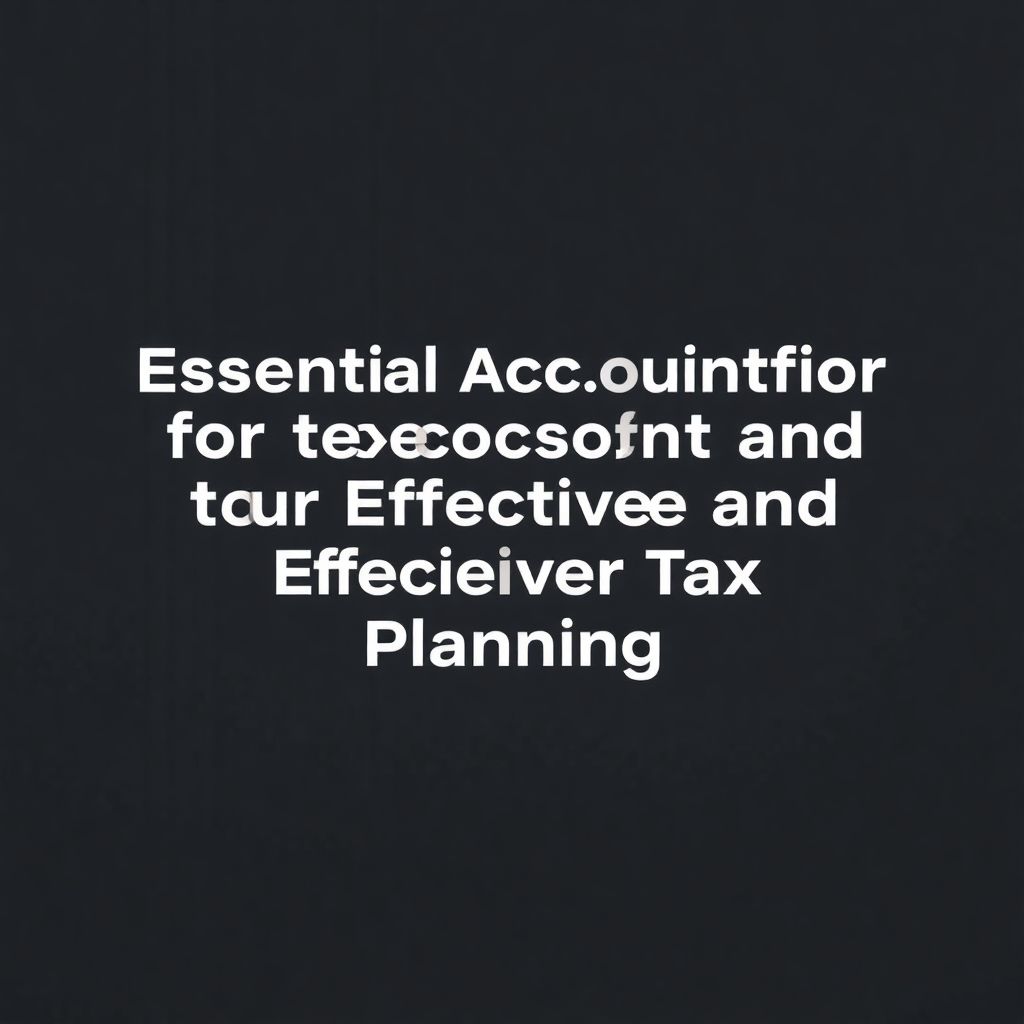Essential Tools for Effective Tax Planning
Digital Accounting Software and Expense Trackers
To effectively manage and optimize your freelancer tax deductions, it’s crucial to use the right tools. Digital accounting platforms such as QuickBooks, FreshBooks, or Wave provide built-in features that allow freelancers to categorize expenses, generate financial reports, and estimate quarterly taxes. These applications sync with bank accounts and credit cards, offering real-time tracking of business-related expenses. Cloud-based storage solutions also help to organize receipts and invoices, which are vital during audits or tax filing.
In addition to accounting software, mileage tracking apps such as MileIQ or Everlance are useful for freelancers who travel for work. Tracking business mileage accurately can lead to significant self-employed tax benefits. Freelancers should also consider using tax-specific platforms like TurboTax Self-Employed or hiring specialized freelancer tax filing services to ensure compliance and maximize deductions.
Step-by-Step Guide to Maximizing Deductions and Credits
1. Separate Personal and Business Finances
The first step in freelancer tax planning is to establish a clear boundary between personal and business finances. Open a dedicated business bank account and credit card. This separation simplifies bookkeeping and ensures that only legitimate business expenses are claimed, reducing the risk of IRS scrutiny.
2. Identify Common Freelancer Tax Deductions
Understanding what qualifies as a deductible expense is central to reducing taxable income. Some of the most common freelancer tax deductions include:
1. Home office expenses: Deduct a portion of your rent, utilities, and internet if you have a dedicated workspace.
2. Business supplies and equipment: Computers, software, and office furniture may be partially or fully deductible.
3. Professional services: Fees paid to lawyers, accountants, or freelancer tax filing services are deductible.
4. Marketing and advertising: Costs associated with website hosting, social media ads, and promotional materials.
Keeping meticulous records of these expenses allows you to fully leverage available self-employed tax benefits.
3. Track Estimated Tax Payments
Freelancers are typically required to pay estimated taxes quarterly. Failing to do so can result in penalties and interest. Use tools or consult with an accountant to calculate your estimated tax burden accurately, factoring in both income and anticipated deductions. Timely payments not only avoid penalties but also improve cash flow management.
4. Explore Tax Credits for Freelancers

Unlike deductions, which reduce taxable income, tax credits reduce the actual amount of tax owed. Some relevant tax credits for freelancers include:
1. The Earned Income Tax Credit (EITC), if income meets eligibility thresholds.
2. The Retirement Savings Contributions Credit (Saver’s Credit), for contributions to an IRA or solo 401(k).
3. The American Opportunity Credit and Lifetime Learning Credit, applicable if you’re investing in continued education to improve your skills.
These credits can significantly reduce your final tax bill, making them an essential part of any freelancer tax planning strategy.
Troubleshooting Common Tax Issues
Missed Deductions and Inaccurate Recordkeeping

One of the most widespread issues among freelancers is failing to capture all deductible expenses throughout the year. This often results from inadequate recordkeeping or using personal accounts for business purchases. To fix this, retroactively review bank statements and receipts to identify missed deductions, and consider amending your return if the oversight is significant. Going forward, set up automated categorization in your accounting software to avoid losses.
Incorrect Estimated Tax Payments
Underpaying estimated taxes can lead to penalties, while overpaying can strain cash flow. Use last year’s income as a benchmark, but adjust quarterly based on actual earnings. Many freelancer tax planning tips from professionals suggest revisiting your estimates monthly to account for fluctuations. If payments are off, correct the course in the next quarter rather than waiting until year-end.
Complex Tax Situations

Freelancers with multiple income streams, international clients, or business-related investments may face additional complexities. In such cases, it’s advisable to consult with certified tax professionals who specialize in self-employed individuals. These experts can help navigate nuanced tax codes and ensure you’re taking advantage of every legal deduction and credit available.
Conclusion
Strategic tax planning is essential for freelancers to maintain financial health and avoid legal pitfalls. By leveraging digital tools, tracking expenses rigorously, and understanding both freelancer tax deductions and tax credits for freelancers, self-employed professionals can reduce liabilities and boost savings. Implementing these freelancer tax planning tips not only leads to smoother tax seasons but also contributes to long-term business sustainability. For those with complex situations or limited time, professional freelancer tax filing services can offer peace of mind and optimized returns.
